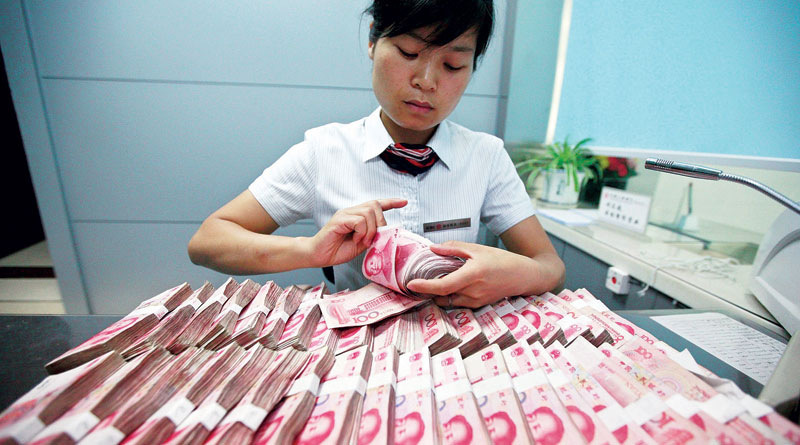

Chinese officials face a perpetuity problem. A provincial government funding vehicle has declined to redeem its perpetual bonds for the first time. State-backed companies embraced equity-like hybrid debt in part to hit their deleveraging targets.
With around $75 billion of it effectively coming due, the shortcut could prove costly.
Jilin Communication Investment Group, hailing from China’s northeastern rust belt, said that it will not redeem a 1.5 billion yuan ($212 million) perpetual note at the first call date later this month. Such bonds have no maturity date, so in theory the borrower never needs to repay the principal — which is why they are often treated as equity on balance sheets.
But investors generally expect them to be redeemed as soon as possible, because if they don’t, coupons leap upward: Jilin Communication Investment will have to pay around 8 per cent to its creditors, compared to about 4.6 per cent at issuance. Failure to repay is thus often a sign of trouble.
Perpetuals are especially popular with state-owned enterprises, which stand behind more than 90 per cent of issuance in China. Under official pressure to cut debt-to-asset ratios by 2 percentage points by the end of next year compared to 2017 levels, state companies began printing perpetual bonds, often with early call dates and steep coupon increases to attract buyers.
They cost more than traditional bonds and risked becoming exceptionally painful if they couldn’t be paid off quickly. But managers appeared to prefer that risk to genuine debt reduction.
Central government officials caught on to the wheeze, and the finance ministry issued tougher guidelines earlier this year. But with about 1.2 trillion yuan of the stuff on balance sheets, according to S&P Global Ratings estimates, they seem reluctant to enforce the new rules too harshly.
That’s especially true for local government financing vehicles, which rank among the most financially precarious of state-backed entities. They stand behind nearly 40 per cent of outstanding non-financial perpetual bonds, according to S&P.
All told, the ratings agency estimated in July that Chinese companies face a combined 533 billion yuan of perpetual bonds hitting their call dates this year and next.
That comes as local budgets are squeezed by tax cuts and cooling growth. Regional governments are important engines of economic stimulus. This could be a long-lasting headache. — Reuters
Oman Observer is now on the WhatsApp channel. Click here



